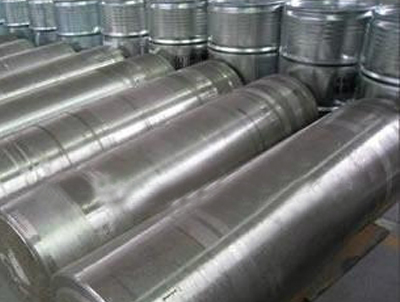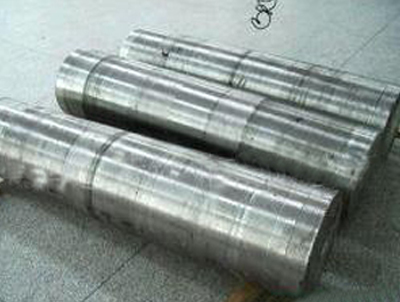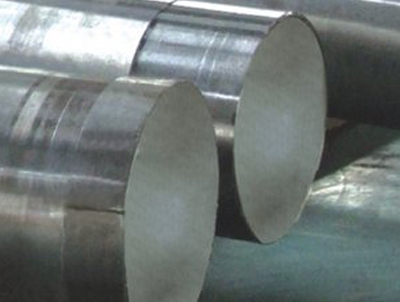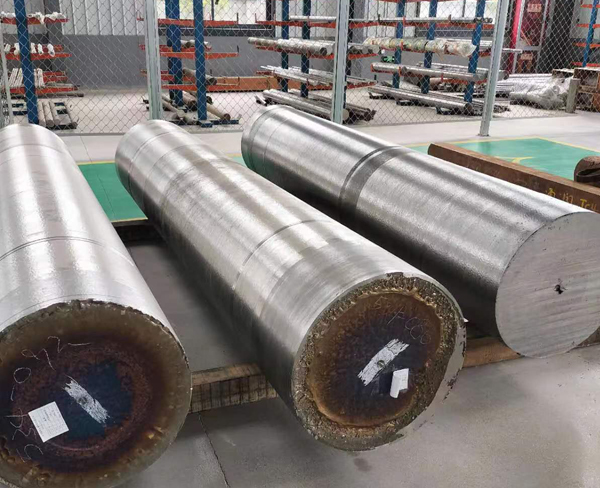Medical

As a new type of alloy and a carrier material, medical titanium alloy is widely used in limb implants, alternative functional materials, dentistry, medical devices and other related fields. Titanium and titanium alloys have the following characteristics: good corrosion resistance, high specific strength, low elastic modulus, fatigue resistance, and good biocompatibility. Among them, good biocompatibility gives it unique advantages compared with other metals, so it is widely favored in the medical field. However, due to its low wear resistance and process performance, efforts to further improve it are also limited. Ongoing.
With the rapid development of the national economy, the demand for medical titanium alloys in the medical field continues to increase due to its excellent properties. As a metal material with excellent biological properties, titanium and its alloys have good application prospects in the medical field. However, compared with developed countries, there is still a certain gap in the research, development and application of titanium alloy materials in my country, such as the high elastic modulus, poor surface activity, poor wear resistance and corrosion resistance of titanium alloys. will directly affect the biocompatibility of the material. Therefore, in order to develop new titanium alloys with better comprehensive properties, our country should increase its efforts in material research and development, focus on innovation, and develop biomedical materials with low elastic modulus, high wear resistance, corrosion resistance, and excellent biocompatibility. Titanium alloy material.
Titanium has good affinity with human connective tissue and bone epithelial tissue, and its excellent mechanical properties also reflect its advantages in medical alloys. It has low density, light weight, good corrosion resistance, and is comfortable to wear. Therefore, titanium is widely favored as dentures (dental implants). In addition, after surface treatment, the aesthetic properties of titanium dentures are increased, which can meet the public's demand for beauty and give people visual enjoyment.
01. Used in the direction of medical devices
Medical titanium alloy medical instruments are the third generation of surgical instruments after carbon steel and stainless steel. In order to improve the anti-rust performance, stainless steel instruments often undergo surface treatments such as chrome plating and electropolishing. However, chromium is toxic, and the shed chromium layer will have certain effects on the human body.
The benefits of using medical titanium alloys as medical devices are:
1. The instruments are lightweight, which can reduce damage to blood vessels, muscles, and organs during surgery, and reduce doctor fatigue. Medical titanium instruments are more suitable for precise microsurgery;
2. It has good corrosion resistance and is non-toxic, the equipment will not rust, the wound will not be easily infected, and the wound will heal quickly;
3. Medical titanium alloy has moderate elasticity and is suitable for use as pliers, tweezers, microscopic scalpels and other instruments;
4. When operating under a shadowless lamp, medical titanium has weak reflective properties and is more suitable than stainless steel;
Medical titanium medical instruments mainly include: scalpels, surgical forceps, surgical tweezers, chest expanders, suture needles, sutures, etc. Medical titanium wire is used as surgical suture. Compared with other materials (such as stainless steel wire), it has the advantages of small tissue reaction and good torsion resistance. After suturing, the surgical wound is less likely to become inflamed and the bone suture site is less likely to shift. Sutures generally use medical titanium wire (TA1 or TA2 wire) with a diameter of 0.5~0.8mm. In addition, the soft elasticity produced by titanium-nickel alloy wire can promote rapid wound healing.
In addition, medical titanium alloy is also an important material for auxiliary rehabilitation equipment, such as wheelchairs, crutches, splints, medical instruments, etc.
02. Widely used in artificial joint materials
According to relevant literature reports, about 100 million patients in the world suffer from related inflammation of knee joints and arm joints every year, and replacement surgery is imperative. Therefore, titanium alloys with excellent replacement functions bring good news to this. Compared with materials such as ceramics and stainless steel, the elastic modulus of titanium alloy is closer to that of human bones, and it has more advantages in terms of modulus. Therefore, titanium alloys are widely used in the correction of ankle joints, elbow joints, etc. In addition, porous titanium alloy materials can make the prosthesis bioactive and help the healing of the femoral head; the surface of titanium alloy has good biocompatibility and can induce the growth of bone cells, so it is highly praised by clinicians and experts in the field of orthopedics. .
The main advantages of titanium and titanium alloys as implant restorations are: ① high strength, good chemical stability and biocompatibility; ② non-toxic and will not cause harm to the human body; ③ low elastic modulus, better matched with human bones ; ④ Memory alloy has excellent elasticity and shape recovery function. In summary, the application of titanium in skull repair is mainly reflected in the use of titanium mesh to repair defective skulls. Applications in human cardiovascular aspects include: preparation of artificial heart valves, blood filters, pacemakers and artificial heart pumps, etc.
It should be noted that titanium is not suitable for all artificial joint parts. Among joint parts, parts that often swing are not suitable because titanium is easy to wear (ceramics and cobalt alloys are suitable), and titanium alloys should be used for implanted parts. In order to quickly integrate it with the biological bone, the surface of the titanium alloy must be made uneven and coated with bone sensors such as apatite (Apatite) and bioglass.
03. Titanium plays an important role in the development of dentistry
The metals used in dental surgery started with amalgam and metal crowns in the 1920s. In the 1960s, gold, silver, and palladium alloys were mainly used. After the 1970s, stainless steel became permanent and removable instruments for orthodontics. The most commonly used material, titanium casting technology was promoted and applied in the 1990s. Dental use of titanium precision casting machines has the characteristics of high dimensional accuracy, no bubbles and shrinkage cavities. Among the metal materials used for human hard tissue repair, the elastic modulus of titanium is closest to that of human tissue, which can reduce the friction between metal implants and bone. Mechanical incompatibility between tissues. The thermal conductivity of titanium is the lowest among all metal materials for dental restorations. Low thermal conductivity can reduce thermal stimulation to the pulp of teeth with crowns, which is very important for tooth restoration. Titanium inlays, full crowns, etc. can protect the dental pulp and avoid hot and cold stimulation. In terms of material, dental titanium is mostly pure titanium. However, it has insufficient strength, is difficult to grind, has poor wear resistance, is prone to casting defects, and has unstable quality. Titanium alloys have high strength, and the most commonly used is Ti-6Al-4V alloy. However, because metal V is harmful to the human body, Nb was used instead of V. Ti-6Al-7Nb alloy was successfully developed, which has excellent corrosion resistance and is It is basically harmless to the human body and has other advantages such as strong plasticity and excellent abrasiveness. It has been approved by ASTM standards. At present, superelastic Ti-Ni alloy is being promoted for tooth straightening.
Since the 1980s, developed countries have begun to study the application of titanium in oral restoration. It was first used for dental implants, and later for denture brackets, crowns and bridges, and orthodontic wires. Currently, titanium can be used for crowns and crown nails. , fixed bridges, porcelain bridges, bonded bridges, denture clasps, bases, connecting devices and reinforcing devices, almost all metal parts of dentures can be made of titanium. The research on titanium and titanium alloys has become a hot spot in dental application alloy research. Titanium alloy porcelain teeth can well restore the shape and function of teeth, and have high strength, beautiful appearance, stable color, smooth surface, wear resistance and corrosion resistance. It is a permanent restoration and is suitable for all fixed teeth. In particular, it has good biocompatibility and is more suitable for people who are sensitive to nickel ions. It has been widely used in tooth restoration.






